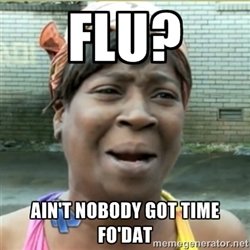James48843
TSP Talk Royalty
- Reaction score
- 904
Center for Disease Control says Influenza outbreak is starting.
http://www.cdc.gov/flu/weekly/fluactivitysurv.htm
Did you get a flu shot this year?
http://www.cdc.gov/flu/weekly/fluactivitysurv.htm
Did you get a flu shot this year?


